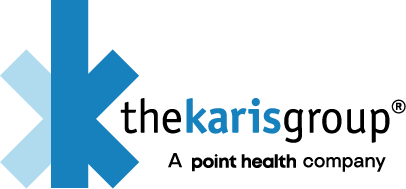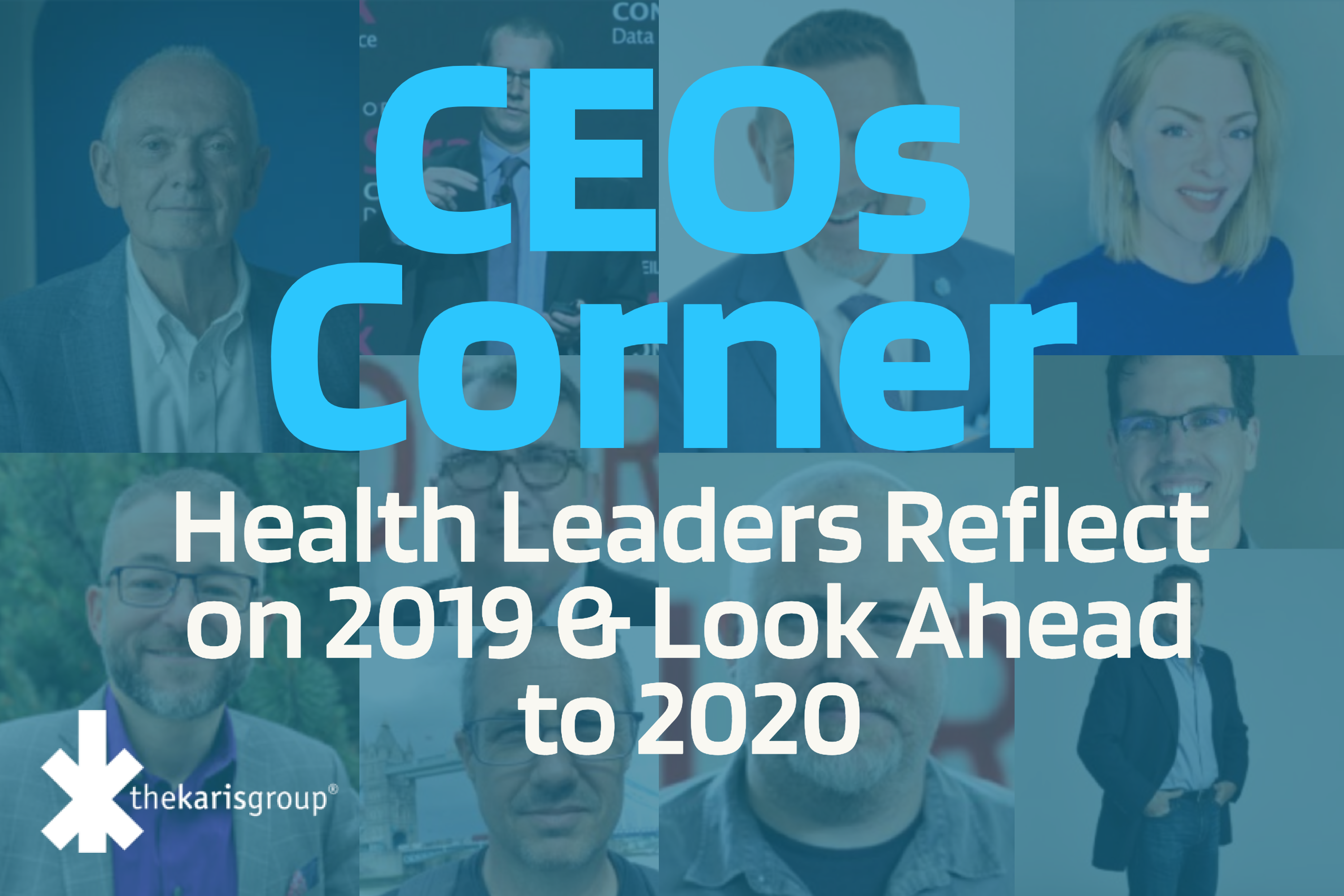Happy 2020! May this be your best year yet!
As we look back at 2019 and reflect on key takeaways, there were some subtle and seismic shifts in healthcare last year. Although serious challenges remain, the emerging changes look promising!
For this edition of "CEO's Corner" I've asked some of our favorite health care leaders to share their top health care takeaway from 2019 and what they are looking forward to in 2020.
Here are their thoughts but I will get started with my own.

"The confluence of opaque pricing, surprise billing, costly high deductibles, capitated plans, and inappropriate care, all of which make up the healthcare mess, reached a tipping point in 2019. Prompting an awakening by many consumers and businesses that the only ones that are coming to fix the dysfunction in the healthcare system is them.
As the awakening gains traction in 2020, the very good news is consumers and businesses are seeking relationships, and partnerships with healthcare innovators like the thought leaders included in this blog for new thinking, methods, and solutions. Together they are co-designing new digital + human care experiences that are high quality, accessible, and affordable. Alternative models to traditional healthcare insurance for handling large medical bills in an ethical and transparent fashion have been available for some time. Increasingly consumers and businesses are considering them as a viable option for managing healthcare costs.
"It's funny how things change slowly, until the day we realize they've changed completely."
– Nancy Gibbs
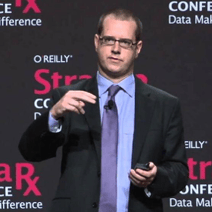
When we reached out to Niall Brennan, President & CEO, Health Care Cost Institute, he said this tweet sums up his feelings:
Entrenched interests 1,256,124 - ordinary people 0 https://t.co/wjvICCHMB5
— Niall Brennan (@N_Brennan) December 17, 2019
 "2019 was a year of talking. But much of it was finally in a more formative and productive direction. What’s occurring now is action. Employers are realizing they have far more leverage than they ever knew possible, and many are starting to exercise it. I cannot think of a better time to be in this industry, and I can’t think of better people to be partnered with, such as my COO, Emma Fox.” - David Contorno, Founder, E Powered Benefits
"2019 was a year of talking. But much of it was finally in a more formative and productive direction. What’s occurring now is action. Employers are realizing they have far more leverage than they ever knew possible, and many are starting to exercise it. I cannot think of a better time to be in this industry, and I can’t think of better people to be partnered with, such as my COO, Emma Fox.” - David Contorno, Founder, E Powered Benefits
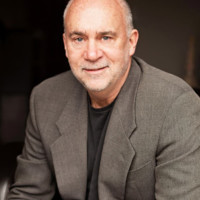
"With the improvement of technology and analytics, 2019 not only demonstrated an expanded decision making role by the consumer but they also exhibited more influence on payers and providers.
In the upcoming election year, 2020 will have no shortage of opportunities. Transparency, interoperability, payment models, and many other key issues will be discussed, but I believe that the ability to move the patient safely and efficiently through the continuum of care will be an area that will gain much-needed traction." - Michael Cress, Chairman & Managing Partner at MD Cress Ventures

"2019 saw some technology players expand their presence in the healthcare space. Amazon launched Amazon Care. While it's only for employees and their families now, how long before it pops up as an option for Prime members? Apple, in partnership with leading medical institutions, launched the Research App. Combined with wearable tech like the iWatch it expands medical studies from a few dozen participants to millions. Health data that took years or even decades to gather can now be compiled in weeks or days. 2020 will bring major new announcements from Amazon, Apple, and Google. My prediction for 2020? Look for the big tech companies to bring primary care directly to the consumer." - Matt Dale, Vice President of Strategic Initiatives, The Karis Group.

"We all naturally reflect on both the past and the future as we come close to a New Year. As the founder of two companies that have been trying to bring change into the healthcare environment for almost 25 years, my viewpoint is this. Change is accelerating, and that is a good thing. The pain being felt by all consumers and employers involved in the payment for American healthcare is now getting to the place where something must change and change now! Books such as Marty Makary's The Price We Pay are taking the veneer off the problem. Underneath the problems are really ugly. In contrast, the rapid expansion of various free-market models that reward transparency and that help bring both physicians and patients back into direct relationships are proving the resilience and the relevance of classic free-market models. Chief among these
change agents is the huge impact being felt from the rapid growth of direct payment methods between patients and doctors. Direct Primary Care and the mushrooming specialty cash-based market by such groups as Green Imaging and various Free Market Surgery Centers are proving that cost competition is raising quality metrics while dramatically cutting costs. The rapid growth of the Sedera medical cost-sharing model is paralleling this free market explosion within healthcare by providing a fully functioning model of a true alternative to health insurance for handling large medical bills in an ethical and transparent fashion.
Looking forward to 2020, my hope is for the developing free-market healthcare ecosystem to dramatically expand. Let's see the continuing impact of innovation that is driven by true competition. Let's ask of our legislators and regulators for freedom from government trying to shape the market by choosing winners and losers and freedom to demonstrate that innovation and transparency, ethically handled, are still the true drivers of excellence and fair pricing." - Tony Dale, Founder and Board Chairman, The Karis Group & Sedera

“ As we leave the teens behind and go into 2020 and beyond, I see more consolidation, in every healthcare vertical; gig-services and aggregation phone apps creating micro-ecosystems that give the consumer the choice to use their dollars or credits for a gym class, “virtual” physician, dentist, dermatologist, behavior health specialist, nutritionist, veterinarian phone and video consults, access to the best in class diabetes program, etc. The“uberization” of services providing consumers with access to on-demand highly-screened senior companions, cash bundled medical procedures, etc., it’s all about consumer choice and content.” - Kim Darling, Founder, CEO and President, Competitive Health

"2019 Takeaway: AI has become table stakes for any new healthcare technology. With most health tech now promising to improve predictions, efficiencies, precision, outcomes, value, processes, and more, machine learning and AI is now established as a must-have for all viable solutions.
2020 Prediction: Fascinating innovations will continue to emerge while the velocity of new technology adoption by the healthcare industry won't keep up or speed up due to entrenched systems of complex contracts and bureaucracy mixed with risk-averse mindsets. Most engagement with new tech implementations will be in device and practice improvements and pharma versus those which strive to empower patients and reduce their risk and cost burdens.
Patient "consumerism" will make minimal headway in 2020 (again), even amid year over year horror stories in the press about poor quality of care, balanced bill price gouging, and secret hospital contracts with insurers.
Awareness around the lack of hospital transparency will make strides, however, massive lobbyists will tie up possible legislation requiring compliance with federal transparency orders.
Patient-centered innovation adoption in 2020 will still mostly be through very large self-insured employers willing to take risks to implement new forward-thinking payment programs and preventative measures taken on behalf of their companies' bottom line and their employees' well being. Also, telehealth will likely have a great year of expansion and adoption in 2020 (a technology that has been around for two decades, by the way!)." - Chris Diede, Co-founder of MPIRICA Health
%20.png?width=212&name=Emma%20Fox%20(Passe)%20.png)
“My top take away is that the landscape is finally taking shape into a new and more transparent environment. Both politically and within our industry, we are seeing more and more leaders speaking up and signing up to embrace change for the greater good, AND we’re seeing health care facilities and insurance carriers starting to respond. Change is really coming!” - Emma Fox (Passe), Chief Operating Officer, E Powered Benefits
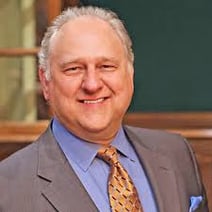 "Organic change happens at the margins. As the NextGen Benefits Revolution strengthens and expands, it’s producing a large and growing body of proof – case study after case study – that health care costs can be reduced and controlled. Yet, most larger companies are rejecting the evidence that NextGen Benefits work and clinging to their status quo-health plan, big-name broker, and BUCA partner. Meanwhile, the BUCAH carriers and these large brokers are appropriating much of our terminology and sometimes even offer our solutions – but their words are hollow, and the solutions are only ever implemented by brochure. NextGen Benefits is driving change and producing remarkable results across the country but almost always at the margins: Small boutique benefits firms are embracing NextGen Benefits and are having success taking mid-market firms from larger, even national brokers. They’re advising the C-Suite… at small to mid-size companies. The executives at these companies are learning to take control of their 2nd or 3rd largest P&L expense – their benefits spend – and to begin managing their health care supply chain, which, in turn, is producing 20-40 percent savings in their health care costs while giving their employees better benefits. This is change that will continue to spread but at the margins. Its notable results, however – the significant cost savings for employers and the higher-quality health care & improved benefits for employees – will percolate slowly up through the business community until a tipping point is reached…likely within two to three years. The Benefits Revolution will win…by working, for now, at the margins.
"Organic change happens at the margins. As the NextGen Benefits Revolution strengthens and expands, it’s producing a large and growing body of proof – case study after case study – that health care costs can be reduced and controlled. Yet, most larger companies are rejecting the evidence that NextGen Benefits work and clinging to their status quo-health plan, big-name broker, and BUCA partner. Meanwhile, the BUCAH carriers and these large brokers are appropriating much of our terminology and sometimes even offer our solutions – but their words are hollow, and the solutions are only ever implemented by brochure. NextGen Benefits is driving change and producing remarkable results across the country but almost always at the margins: Small boutique benefits firms are embracing NextGen Benefits and are having success taking mid-market firms from larger, even national brokers. They’re advising the C-Suite… at small to mid-size companies. The executives at these companies are learning to take control of their 2nd or 3rd largest P&L expense – their benefits spend – and to begin managing their health care supply chain, which, in turn, is producing 20-40 percent savings in their health care costs while giving their employees better benefits. This is change that will continue to spread but at the margins. Its notable results, however – the significant cost savings for employers and the higher-quality health care & improved benefits for employees – will percolate slowly up through the business community until a tipping point is reached…likely within two to three years. The Benefits Revolution will win…by working, for now, at the margins.
My 2020 prediction will be the year the Empire strikes back. The entrenched stakeholders in both the benefits and the healthcare industry – and especially the BUCAH carriers, the large PBMs, and the large brokers, i.e., the biggest beneficiaries of the status quo system – will begin to actively resist the efforts of the Benefits Revolution to disrupt and change their lucrative status quo. Already the hospitals publicly are fighting price transparency, and many of the big systems are taking a hard stance against Reference Based Pricing. As more companies move from fully insured health plans to some form of alternative funding, the BUCAHs will begin to punish with canceled contracts the more vocal and visible advisers promoting NextGen Benefits. The BUCAHs are starting to use their political and financial clout to shut NextGen Advisers out of business opportunities in order to protect favored incumbents. With the drug spend representing the lowest hanging fruit in health plans rife with waste and abuse, the PBMs will start to fight the fiduciary PBMs and the insurgent tactics around specialty drugs that threaten their most profitable business. The most vocal critics of the Status Quo will find themselves victims of smear campaigns. The forces of the Revolution have always been serious; the Keepers of the Status Quo are about to get very serious in protecting the system that enriches them. But despite their counter-revolutionary efforts, the Status Quo is in a war it can’t win, one that is defined by bottom-line results – i.e., the real year-over-year cost savings delivered to employers – results the Status Quo cannot and will not produce. Results – meaningful and measurable cost-savings – are the ultimate weapon against the Status Quo. The Status Quo can’t defeat the Benefits Revolution because the war is being waged in a blue ocean where the Status Quo is irrelevant and uncompetitive. The soldiers of the Benefits Revolution will triumph eventually because, well, NextGen Benefits works while the Status Quo produces serial failure. So for those fighting for transparency, fiduciary responsibility, high-performance health plans, and value-based health care, it will get darker for a while, but the darkness will be short-lived. Vive la révolution!" - Nelson Griswold , Co Founder and Conference Chair, ASCEND
 "My Takeaway for 2019: The “buyer of healthcare” (individuals and businesses) are finally starting to ask for price transparency on medical services.
"My Takeaway for 2019: The “buyer of healthcare” (individuals and businesses) are finally starting to ask for price transparency on medical services.
My Prediction for 2020: Medical Cost Sharing will become a more viable / commonly used non-insurance solution for small employers." - Jaime Lagarde, CEO, Sedera

"Last year our Energizing Health partners like RWJF and Aetna Foundation were all about building healthy communities - and that hasn't changed. But then also this year it is all about affordable housing - recognizing it's hard to worry about access to care when you don't even have a roof over your head. This year our partners like American Hospital Association and Aetna Foundation are joining others like Kaiser Permanente to tackle the problem of everyone having access to affordable housing." - Brian Lang, Chief Strategy & Innovation Officer, Energizing Health; VP of Marketing, CareSet Systems

“2019 was no doubt the year of healthcare pricing transparency. The goal of transparency is so that consumers, both individuals, and employees covered through a corporate health insurance policy, can engage in the healthcare process just as they do when buying an automobile or home. Once prices from hospitals, pharma, and insurers are posted and available, there's no more excuses, at that point it's on the consumer to become an EHC - an Engaged Healthcare Consumer. We have the Personal Healthcare Spending Reduction Tool and other resources at DrJoshLuke.com for those who are ready to engage - let 2020 be the year you become and EHC!” - Josh Luke, Health Policy Professor at the University of Southern California, Healthcare Futurist. Former Hospital CEO, Executive Healthcare Coach & Mentor
 “There is general agreement that healthcare pricing is unsustainable, but the solutions being pursued are incredibly diverse. Ideas I’m monitoring include increased centralization of healthcare administration, capping prices through laws, forced negotiations with severe penalties, pro-open marketplace initiatives around data sharing and reimportation, etc. Some of these ideas are polar opposites of each other, so watching how this election cycles evolves and seeing if the candidates are truly committed to change will be the healthcare issue to watch over the next 2 years.” - Chris Moose, Partner, Life Sciences & Healthcare, IBM
“There is general agreement that healthcare pricing is unsustainable, but the solutions being pursued are incredibly diverse. Ideas I’m monitoring include increased centralization of healthcare administration, capping prices through laws, forced negotiations with severe penalties, pro-open marketplace initiatives around data sharing and reimportation, etc. Some of these ideas are polar opposites of each other, so watching how this election cycles evolves and seeing if the candidates are truly committed to change will be the healthcare issue to watch over the next 2 years.” - Chris Moose, Partner, Life Sciences & Healthcare, IBM

"Takeaway from 2019: We are finally seeing the long-expected rise of the non-traditional, consumer-oriented (technology, retail, etc.) companies making strong moves in healthcare that are likely to sustain.
Prediction for 2020: I don’t have a good prediction. I suspect more chaos. And I suspect you are going to see more consolidation." - Marcus Osborne, VP of Health and Wellness Transformation, Walmart
 "The ultimate customer in health care, the patient, showed that there is a desire to pay for health care services out of pocket--one that is convenient, tech-enabled, and provides a great outcome. We saw this in telehealth direct to consumer companies like Roman, Hims/Hers, and Keeps. Prior to 2019, most experts said people were not willing to pay out-of-pocket for a lot of things.
"The ultimate customer in health care, the patient, showed that there is a desire to pay for health care services out of pocket--one that is convenient, tech-enabled, and provides a great outcome. We saw this in telehealth direct to consumer companies like Roman, Hims/Hers, and Keeps. Prior to 2019, most experts said people were not willing to pay out-of-pocket for a lot of things.

“I think 2019 is the year where the industry starts to question how Big Tech should interact with Health IT. Previously, they had gotten a blank check for access to healthcare data. But now people are questioning whether Big Tech is allowed to be in tech”. - Fred Trotter, CTO, CareSet Systems

"2019 was a year that CX took off in healthcare. Changing consumer expectations are now hitting the healthcare industry, and patient experience and satisfaction—from the front-office to patient care to revenue cycle—rightly took a more prominent role as a strategic value for healthcare organizations. In 2020, not only do I predict that CX will continue to become a differentiator between healthcare organizations, but I also predict that many healthcare organizations will recognize the value of collaborative and strategic relationships. All players in the industry seek the same goal – the health and well-being of every patient, and organizations that focus on that outcome and solve shared problems together will become market leaders." - Rob Waldo, VP of Member Services, Samaritan Ministeries International
We are thankful for all of the responses we received and are excited to see what innovative changes will arise in the year 2020.
To learn more about The Karis Group and our Karis Cost Containment Services, you can visit our What We Do page or Contact Us to schedule an intro call.
